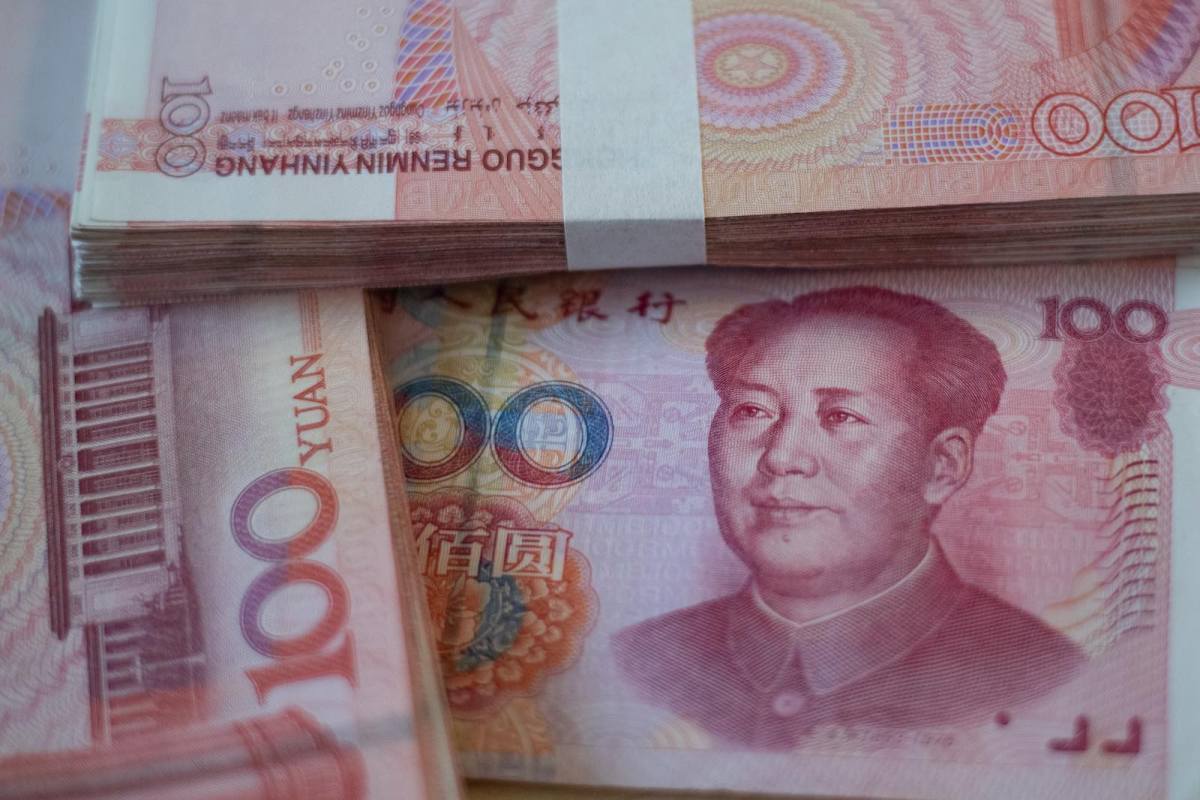(ATF) The Bank of China says there was steady momentum last year with increasing willingness of foreign companies to use the yuan/renminbi in financing and settlement.
The bank released a “2019 White Paper on yuan Internationalization” on its website recently, saying that some countries such as Cambodia use the yuan/RMB and dollars as a de facto currency because the local currency is unstable.
It said some 3,274 industrial and commercial enterprises gave feedback in the survey, 73% of which were 2,436 domestic enterprises, along with 899 overseas enterprises (27%). The overseas industrial and commercial enterprises cover 34 countries and regions.
The white paper noted that evaluation of the yuan as an international currency depends mainly on its five major functions – settlement, valuation, financing, investment and savings or holdings. In 2019, the functions of yuan in settlement, financing, and investment improved significantly, the PBOC said.
In terms of financing, about 82% of the foreign industrial and commercial enterprises surveyed said that when liquidity of international currencies such as the US dollar and the Euro is tight, they will consider using the yuan as a financing currency. That is an increase of 13 percentage points over the previous year.
Also, 75% of the foreign industrial and commercial enterprises surveyed indicated that they are willing to consider using yuan as a trade financing currency in their economic and trade transactions with China.
The white paper pointed out that factors such as interest rates, exchange rates, risk hedging costs, and ease of access to funds have varying degrees of impact on whether overseas market players choose yuan as a trade financing currency.
It said if China can further develop a deeper and broader foreign exchange market, enrich exchange rate risk management and control tools, and reduce yuan exchange rate risk hedging costs, it would help enhance the currency function of yuan trade financing.
In terms of settlement, about 69% of the foreign industrial and commercial enterprises surveyed indicated that they intend to use the yuan or further increase the use of RMB, which is an increase of 9 percentage points from the previous year and close to the best level in history.
At the same time, the willingness of overseas trading partners of domestic companies to accept yuan settlement has increased compared to the previous year. Nearly 40% of the domestic enterprises interviewed reported that their overseas trading partners’ willingness to accept yuan settlement had risen compared with a year ago, and the function of RMB as a cross-border trade settlement currency had been recognized by more foreign companies.
However, the white paper said the lack of convenience for foreign market entities to obtain RMB has restricted their use of it in settlement to a certain extent. In the survey, nearly 30% of the domestic enterprises interviewed said that their overseas trading partners lacked a source of RMB, which prevented them from paying in yuan.
In terms of investment, the white paper showed that as the two-way opening of the financial market continues to advance, the investment currency function of the yuan has also been further strengthened compared to previous years. The survey results show that among the foreign industrial and commercial enterprises interviewed, 36% of companies intend to consider increasing their holdings of yuan financial assets, an increase of 8 percentage points from the previous year.
“From the survey results of the last three years, the proportion of overseas industrial and commercial enterprises willing to consider increasing their holdings of yuan financial assets is increasing year by year, showing that the function of the yuan as an investment currency is steadily increasing.” The white paper said.
Judging from the preference for holding yuan financial assets, bonds are the most popular among foreign investors among all types of RMB assets. Nearly 40% of the overseas industrial and commercial enterprises interviewed plan to increase their holdings of RMB bond assets; 11% of the overseas industrial and commercial enterprises interviewed proposed increasing their holding of RMB stocks and equity assets. The proportion of these two has increased significantly compared to the previous year.
According to the latest data released by the Central Government Securities Depository and Clearing Corporation, foreign investors have increased their holdings of yuan bonds for 15 consecutive months. Even when the global financial market was shaken last month and the dollar shortage caused global capital to return, foreign institutions still increased their holdings by about 6.2 billion yuan in yuan bonds.
However, the progress of the yuan as a currency of valuation and value storage currency has been relatively limited.
The white paper said that nearly 20% of the domestic interviewed companies insisted on yuan pricing when the yuan exchange rate fluctuated. This ratio has remained stable for four consecutive years, indicating that the renminbi currency function has been relatively slow to improve.
Authors of the white paper believed this is due to many factors including trading habits, settlement currency selection upstream and downstream of the supply chain, and financial market support. The improvement of the yuan-denominated currency function requires a long-term accumulation process from quantitative to qualitative changes.
























